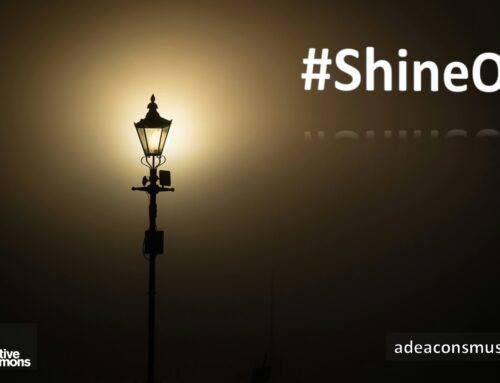The catalyst for this week’s poetry arises out of my current PhD studies. The tentative theological proposition, which summarises an exploration of an old Christian conversation – the Pelagian Debate, is grounded in a set of postmodern assumptions, specifically through the lens of relational construction. The poetry above, therefore, attempts to follow and mirror each point of the tentative theological proposition. Finally, the beginning of my PhD work begins by using fiction, The Story of Then, to tell explore the historic context of the Debate. The Story of Then can be found here:
Postmodern assumptions:
- A postmodern integrated theology acknowledges that we are relationally connected and construct meaning with one another and our environment;
- A postmodern integrated theology recognises that the power of the word possesses the literal ability to create life and take life;
- A postmodern integrated theology takes seriously that all that we construct together will lead to processes and doctrine, practices and rituals that will define what is normative;
- A postmodern integrated theology accepts that consensus, ongoing reflection and witness must occur, in order to be open and present to the needs of those who are marginalised by our constructions; and,
A tentative theological proposition;
- Central to the Christian tradition is the Trinitarian formula that is foundationally relational. This relationality is both internal to the Unity of One and also reflective of humanity’s role as co-Creators with one another.
- Sin and Blessing are complementary components of a larger theological tradition that arises out of the Christian Genesis stories;
- Blessing, both historically and chronologically within the Creation stories, occurs first: “We are first and foremost the beneficiaries of an original blessing and not the victims of an original sin” (O’Murchu, Originally, 18);
- Genesis, from the Jewish tradition, does not articulate a “permanent rupture of the divine-human relationship” (Sarna, ETZ, 18);
- The Tree of Knowledge, as midrash, was a reflection on the complexity and ambiguity that arises with knowledge. The event, therefore, is not prohibitive but serves as a warning or challenge;
- Original Blessing, in the context of awakening at the Tree of Knowledge, is a call to bring about the healing & transformation of the world;
- Original Blessing takes seriously the role of humanity as relationally connected to Creator as co-creators;
- Original Sin is a warning and challenge that arises out of the act of disobedience. In the moment of awakening, therefore, our creativity and potential possesses the truth that we can turn away from our divine call as co-creators. The result of awakening, which now means humanity must recognise and harness the power of choice that highlights the tension between our animal and human nature is exile from the Garden, which remains intact;
- In humanity’s ability to turn away from our relationship with Creator, Original Sin testifies that “the deepest of all demonic activity is the use of our divine imaginations to invent destruction” (Fox, Primer, 232) and “[Sin] consist[s of] injuring creation and doing harm to its balance and harmoniousness, turning what is beautiful into what is ugly” (Fox, Primer, 119). In our ability to sin, as an act, we possess the power to deny love and thus break the covenant we have with Creation;
- The ritual of baptism, when not framed through Christian supersessionism is the ritual through which the community recognises and acknowledges membership. This sacred ritual is an internal practice, which does not presume or position itself as Truth. In the context of a pluralistic society, this allows the community to claim its ‘t’ruth with confidence and humility in recognising that no one preference can contain the Divine. From the Christian tradition, therefore, this ritual recognises that all peoples are composed of the sacred element we call water;
- As partners in creation we possess both the potential to create and also require Grace to live into that potential. In this paradox, we are continually striving to be reconciled to ourselves and one another.
“So Fall-Redemption and true Creation Spirituality can be integrated. Indeed, I believe they cannot really be separated because we cannot have Hope without Redemption, nor can we have Original Blessing without the idea of Original Sin” (Basden 4).



















Your reflections are most welcome!